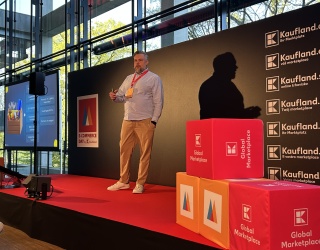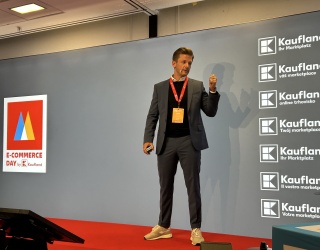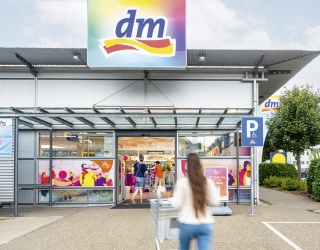No question about it, e-Commerce is booming, but it doesn’t apply to all industry sectors the same way. While books, clothing items or consumer electronics are already being sold online to a large extent, online food retail is still in its early stages. As an expert for shop software, Zaunz Publishing has already been active in this area. In this interview, Managing Director Silvan Dolezalek explains the special challenges of online food retail and the innovative solution that Zaunz realized for the startup company Cookbutler.de. Robert Walters from Cookbutler explains the innovative business model.
Mr. Dolezalek, you have already implemented shop solutions for several customers. How do the demands of online food retail differ from those in other product areas?
Silvan Dolezalek: The needs primarily focus on the characteristics of the German Base Price Regulation (German: Grundpreisverordnung), which stipulates that all price quotations need to be calculated from a base price. The typically very large assortment of products needs to be broken down to the truly needed foods. An article description is not needed for the most part, but still necessary for SEO reasons (how do you best describe a tomato?). What’s more, food sales depend even more on good graphical material than technical products for instance. If the customer’s mouth doesn’t water when he looks at the ingredients, he is probably unable to envision the product arriving fresh at his home.
Returning customers want to constantly be inspired in food stores, i.e., regular content management is important. This is why we offer various modules for this. The shopkeeper however is challenged to post new recipes or sales campaigns daily if possible.
In addition, internal labeling for those articles that are subject to so-called cold chain compliance is important. Not all ingredients are also available at every supplier. Random recipes are therefore a logistical challenge and need to already be optimally listed on the packing list.
Did you have to specially adapt or modify your software for this project?
Dolezalek: Absolutely. Many special adaptations were necessary. Even though the above-mentioned Base Price Regulation is by default in our shop systems, with a pure food store, the description and calculation need to be optimized. Another difficulty was the fact that ingredients cannot always be offered in the actual amounts required for a specific dish (like for instance the infamous dash of salt). When somebody orders several recipes (with overlapping ingredients), the configurator should not across-the-board suggest double the quantities, but rather consider the remainder of the ingredient. The recipe configurator also needs to be intuitive and immediately display all the required groceries. The items that are not required need to be able to simply be deselected.
In addition, there are delivery dates the customer needs to be able to choose (so the fresh items also definitely arrive when the customer is at home). This was a real challenge in conjunction with the initial task to only operate the store in Munich. By now however, the delivery area has been expanded to cover all of Germany.
Ultimately, the complete recipe, which is only hinted at in the store, has to be delivered to the customer with the order. This takes place in the integrated invoice, which aside from the bill also prints out the selected recipe and encloses it with the products.
At the “Internet World 2013“, Cookbutler.de received an award in the ”Most Innovative Business Model“ category. What makes Cookbutler’s business model so special?
Robert Walters: So far, Cookbutler is the only e-Food shop that does all the grocery shopping work for the customer. The customer makes his food buying decision when he plans the meals and not while he is at the supermarket. To do this, the customer chooses a recipe or asks for suggestions and adds the number of people the meal is meant to be prepared for. Cookbutler then takes over, generates the shopping list and quantities (deletion of individual already available ingredients is possible) and delivers the ingredients right to the customer’s door – all over Germany!
Compared to an online supermarket, you don’t have to go through a complicated process of placing the ingredients into the shopping cart and calculating quantities; the ordering process is completed within a few seconds. By contrast, cooking subscriptions also try to do this job for the customer, but they are not catering to the customer’s wishes, but rather deliver standardized and previously unknown dishes. At Cookbutler on the other hand, the customer chooses his/her favorite dish from approximately 4,000 different recipes.
Do you believe that this type of recipe-based food shopping can help to put online food retail on the map?
Walters: The breakthrough in online food shopping can only be achieved with comprehensive and efficient logistics. Amazon’s new food barcode scanner is definitely a first step to make consumers aware of online food shopping. Gaining the customer’s trust is the crucial element here.
Startups like Cookbutler focus on the customer and on meeting his/her needs, which is the first important step. Thanks to our partnership with the online supermarket mytime.de, which is part of the Bünting Group, we have found a partner that is already able to offer this kind of logistics nationwide. So far, no other shop is able to offer this combination. It is now up to us to communicate and prove this advantage to the customer. In doing so, online food retail will work and your entire weekly shopping can also be completed.
Interview: Daniel Stöter, iXtenso.com






